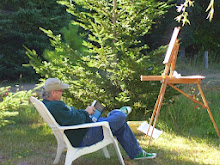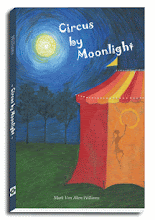The world of publishing these days is in the midst of a sea change. The brick and mortar sellers are disappearing, and some of the best writing is coming from small and independent publishers. The big houses are spending less on promotion, and authors find themselves now the main promoters of their work. Social media has become a way for them to network, promote new books and short stories. They find themselves responsible for booking their own readings and signings at local book stores.
Book trailers have become a recent addition to the literary world. They are video promotions used as a launch element. They are basically put together by the author or a techie type family member or friend. The ones who have some money to work with, hire a professional to produce it. They come as a grab bag of pseudo big budget movie trailers, to mundane talking head author interviews.
Most authors will tell you that they detest the idea of having to do this. After pouring your soul into the creation of a work, the idea that you now have to become a snake oil salesman is horrifying. We, as authors, would like to think that our work will find its audience, and that the work speaks for itself. The sad fact is that no one will buy your book, if they don’t know about it.
The home for these trailers, is YouTube.
Many people view them as truly strange cultural artifacts. I’ll let you judge.
I have two examples from author friends who have the same publisher as me.
String Bridge by Jessica Bell
Jessica Bell grew up in Melbourne, Australia, to two gothic rock musicians who had successful independent careers during the '80s and early '90s. She spent much of her childhood traveling to and from Australia to Europe, experiencing two entirely different worlds, yet feeling equally at home in both environments. She currently lives in Athens, Greece and works as a freelance writer/editor for Hellenic American Union, Cengage Learning, Pearson Education, Education First and Signature Manuscripts. Jessica Bell has published a book of poetry called Twisted Velvet Chains. Jessica sings on the video.
My Beginning by Melissa Kline
Melissa Kline penned her first novel at the age of thirteen and has been writing consistently for fifteen years. She has completed ten young adult novels and several short stories. Her preferred genre is young adult, but she writes non-fiction and children's books as well. Her calling is to connect with others and give hope through writing. She is particularly interested in supporting women and young adults.
Now here is my low budget, low tech video trailer of one of my books, written under the pen name, Tonto Fielding.












